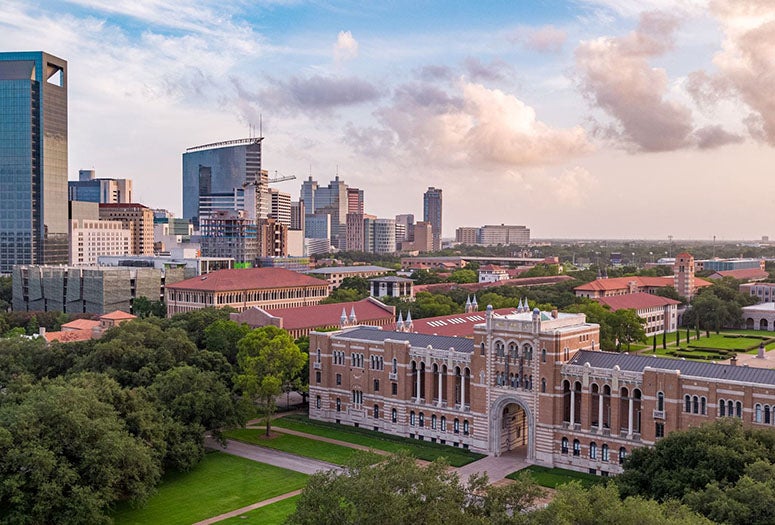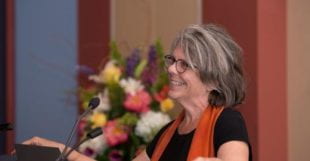Asian studies can all too often be conflated with “East Asian studies,” when in fact the continent of Asia comprises an incredibly diverse array of cultures and countries: Turkey to Taiwan, India to Indonesia, Armenia to Afghanistan, South Korea to Saudi Arabia.
That’s why the operative word in the School of Humanities’ new Department of Transnational Asian Studies is “transnational,” emphasizing its faculty’s continent-spanning work.
This also makes the department unique: There is no other Department of Transnational Asian Studies in academia, another hallmark of Rice’s brand of unconventional wisdom.
“I love, love, love that it's specifically ‘Transnational Asian Studies,’” said Lisa Balabanlilar, associate professor of history and chair of the new department. “We're not limited by national borders and we're not looking exclusively at East Asia. In fact, our Asia is nearly global, because we're inclusive of the Asian American diaspora.”
The new department has been created to build upon the standard set by the T.T. and W.F. Chao Center for Asian Studies, which was founded in 2008 with an explicitly transnational focus.
The Department of Transnational Asian Studies provides a new departmental home for faculty with expertise in a range of disciplines. At Rice, centers cannot house faculty appointments, so the idea, said Dean of Humanities Kathleen Canning, “was to make the transnational Asian studies expertise at Rice more visible by creating a department that provides a more recognizable curricular structure to students.”
The Chao Center will remain the research hub in Asian Studies and will be strengthened by the founding of a department that effectively provides its wider context.
And with approved hiring initiatives in transnational Asian studies set to launch in the fall — with the explicit goal of bringing the most innovative and field-defining scholars to Rice — the new department will grow quickly, Canning said.
This new organization thus combines resources to provide a dual focus on high-caliber teaching and research production. A departmental structure will also foster the proposal for a new master’s degree in transnational Asian studies, which will undergo curricular review during the coming year. With the requisite number of faculty appointments in the new department, there’s been a physical move, too: starting this fall, the new department and the center will occupy a renovated suite of offices on the third floor of Lovett Hall.
According to Dean of Humanities Kathleen Canning, the goal of the Chao Center is to support faculty research excellence that will have national and international impact. It will continue to support innovative faculty research projects, host postdoctoral fellows from around the world and organize major international conferences — all while launching a new distinguished speaker series and thematic interdisciplinary workshops.
The Chao Center will also continue publishing its journal, the aptly named Transnational Asia — an indicator of the direction in which Rice scholars have long focused — while the new department will take on the undergraduate-managed Rice Asian Studies Review.
As founding chair, Balabanlilar wants to focus first on creating cohesion among her new team, some of whom hadn’t previously been in a department of their own, while welcoming the large number of affiliated faculty at Rice and expanding the department’s offerings.
“I'm looking at the undergraduate curriculum and ways of building it out to be inclusive and to be accessible to more students,” she said. “It's very exciting because it is a multidisciplinary major, so it pulls from across the social sciences and humanities. Students can create a unique field of study out of history and literature and religion and (political science).”
Balabanlilar is excited, too, that someone with her research background was selected to lead the new department, because it says something about the expansiveness of the work to come.
“I don't know any other Asian studies centers that are inclusive of the kinds of scholarship that our faculty represent under that ‘transnational’ umbrella — not just the transnational Asian faculty but all of our affiliated faculty, too. My own research focus is on Islamic Turco-Mongol kingship in India,” she said. And yet, she added, “I teach the history of the Mongol empires and their successors, from Mongolia to Iran to India. Talk about transnational!”
“It’s all looking very exciting,” Balabanlilar said.


